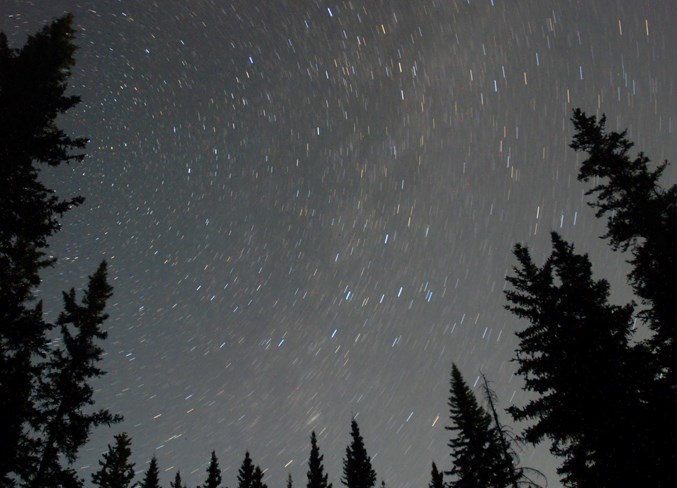Aspiring astronomy enthusiasts as well as seasoned stargazers now have an opportunity to explore the night sky alongside others who share an interest in learning more about our cosmic backyard.
“I really enjoy cosmology and the study of the history of the universe and where the universe is headed,” said Ryan Beck, who recently spearheaded the effort to launch the new Sundre Astronomy Club.
“What Galileo saw through his first telescope, that really made a difference in our opinion of our place in the cosmos. It was a really important stepping stone for the world of science. It gives us perspective on our place in the universe.”
Courtesy of the Sundre High School’s acquisition of some stargazing equipment for students interested in pursuing astronomy as an option, Beck, who is also the school’s science teacher running the new course, decided to create a club that caters to any residents of all ages in the area.
Kyle Mitten, a Trochu-area resident, sold the school more than $15,000 worth of equipment for a modest sum of about $1,000, a cost that in turn was covered by the Sundre Lions Club, said Beck, expressing his gratitude.
Mitten “was hoping we could do something for the community as well as the school,” the teacher said, adding he wanted to honour the “remarkable gift” that helped motivate him to start the astronomy club.
The school now has three telescopes — an eight-inch as well as a 10-inch Dobsonian, and a 14-inch Schmidt-Cassegrain that is specialized for deep sky viewing for celestial objects such as nebulae as well as galaxies and can also be digitally programmed to track a specific coordinate in the sky. Additional accessories include a Williams Optics refractor that is specialized for observing the planets and the moon as well as some astrophotography equipment that enables a user to connect a camera to the scope, he said.
An inaugural stargazing session scheduled for Thursday, Aug. 9 was postponed due to the smoky haze that has recently been coating the area as a result of wildfires. Planets tend to be low on the horizon and clear skies are required to see them properly, he added.
A second attempt set for Friday, Aug. 17 at the sports field behind the high school was also postponed as conditions had not yet sufficiently cleared. Beck hoped to proceed last night.
The relative isolation of a rural municipality such as Sundre drastically reduces the impact of light pollution emitted by larger urban centres, he said.
“I’m looking forward to seeing what we can see from within town.”
Although still early on in the new initiative, Beck has his sights set among the stars and hopes to — depending on interest and support — eventually work towards establishing a local observatory, perhaps behind the high school, to accommodate the 14-inch Schmidt-Cassegrain, which requires a sturdy concrete mount as opposed to a less stable collapsible tripod.
“My goal is to — if we can get some enthusiasm in the community — see about the possibility of working toward building an observatory.”
Beck hopes to host another stargazing session in September, and from there will see how things go.
People planning to attend any upcoming sky watching events are encouraged to follow some basic etiquette, primarily to exercise consideration of other stargazers’ light sensitivity, he said.
“It takes 30 minutes to fully sensitize your eyes to dark conditions. Any bright light will cause everyone there to see less detail in the night sky for the next half hour.”
So when driving in, people are urged to arrive before sunset, and those who leave before the rest of the group are asked to park a distance away with their vehicle facing away from the staging area so headlights do not interfere with the remaining stargazers’ viewing enjoyment. Additionally, flashlights are a major faux pas, he said, pointing out that professional astronomers typically use red light, which causes the least amount of light desensitization.
“You can cover your flashlight with a red filter. I have seen some painted flashlights, some with red tissue paper and other solutions — just make sure it won’t be a fire hazard.”
Also, anyone who appears to begin behaving recklessly around the equipment will be asked to step away, he said.
Some items that people often bring out to dark sky events include, but are not limited to, the following: layers of warm clothes and blankets or sleeping bags; something to sit on, especially lounge chairs; personally owned telescopes that other members might even be able to impart knowledge about; and some snacks.
Look up the Sundre Astronomy Club News Page on social media for more information and to follow the group’s activities.



